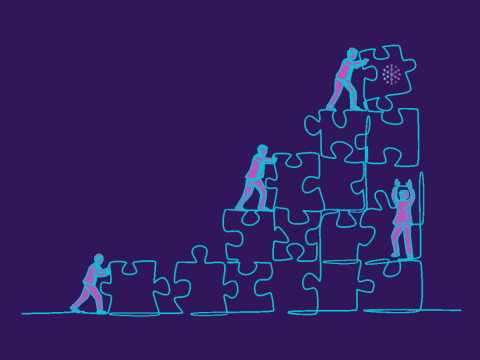As we age, our cognitive abilities decline, and many of us may experience memory loss, dementia, or neurodegeneration. However, research shows that some individuals are resilient to the ravages of time and remain cognitively intact even after reaching 100 years of age.
What if we could evade the aging process, resist genetic risk factors of cognitive decline, or even reverse aspects of brain aging altogether?
The Knight Initiative for Brain Resilience seeks creative and bold proposals from Stanford research and clinical faculty with PI eligibility that have the potential to generate paradigm-shifting insights into healthy brain aging and resilience against cognitive decline and neurodegenerative disorders.
Application and eligibility information
"About 1 in 10,000 individuals reaches age 100 cognitively unscathed — seemingly resilient to the effects of time. The Phil and Penny Knight Initiative for Brain Resilience seeks to emulate this sidestepping of the aging process and raise the hope of reversing brain aging altogether. "
— Tony Wyss-Coray, Director, Knight Initiative for Brain Resilience
Catalyst Grants Application
Application deadline: April 22, 2024
Please review the application and eligibility information before applying. In brief:
- Stanford research and clinical faculty with PI eligibility (UTL, MCL, or NTL-research appointments) may apply
- Previous Innovation or Catalyst award PIs are only eligible to submit as a Co-PI on this round
- Applicants may request up to $500,000 in direct costs over a 2-year duration
Funded Catalyst grant projects
Convergence of signals for pruning at a synaptic receptor implicated in Alzheimer's disease
Memories are stored at synapses and circuits, which tragically are pruned and deconstructed in Alzheimer's disease (AD). Genetic mutations including APP generate high levels of soluble oligomeric beta amyloid (oAbeta42), leading to insoluble beta amyloid plaques - hallmarks of late-stage disease. Clinical trials have designed "plaque-busting" drugs assuming that plaques cause disease.
AI to model and boost brain repair and resilience during aging
This team aims to use the power of artificial intelligence to make new findings about brain aging, with the goal of boosting brain repair and resilience. They are particularly interested in spatial changes in the brain during aging. Their goal is to understand how aging renders the brain susceptible to injuries that accentuate neurodegenerative diseases.
